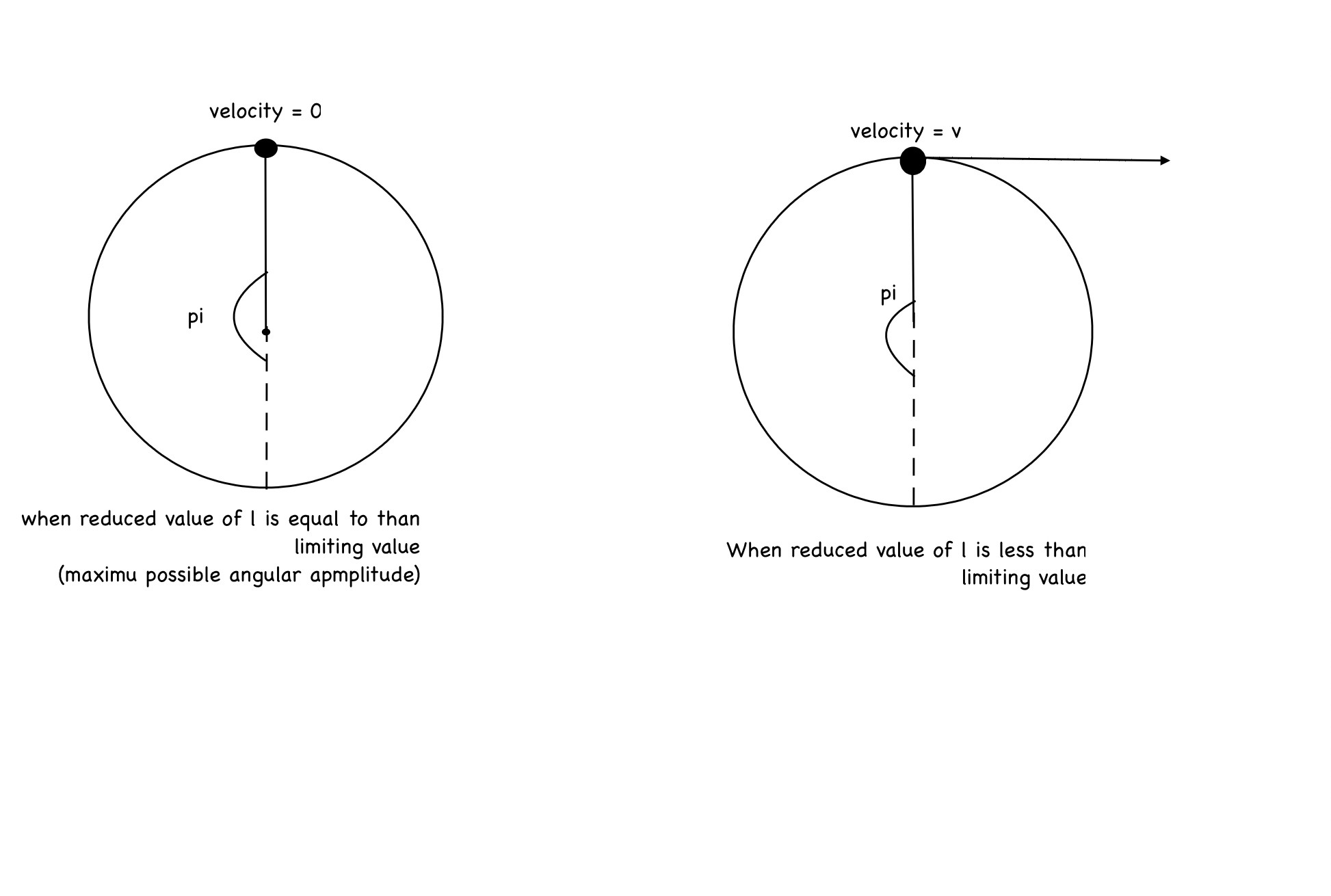A simple pendulum has a point like bob of mass $m$ and a light inextensible string. Suppose, by means of some arrangement, we shorten the string extremely slowly, so that at any instant, the ratio of length to rate at which it changes is much greater than the period of the pendulum. Suppose the length of the string is $L$ and the angular amplitude (assumes to be small) is $\theta$. Now, at this moment, the length of the string is changed by $\Delta L(<0)$ , what would be the corresponding change in angular amplitude $\theta$.
I believe the amplitude would increase (based on horrible imagination so I might be wrong). I am unable to convincingly work out this problem. I am having difficulty in incorporating the fact that "at any instant, the ratio of length to rate at which it changes is much greater than the period of the pendulum."
Could anyone please give an elementary approach(highlighting the mathematics) or a hint of some kind?
Edit: I tried analysing the forces on the bob using polar coordinates as I could see terms like $\dot r$ and $\dot \theta$. But I couldn't make significant progress towards the original question.
(I am not familiar with the Lagrangian as yet.)

